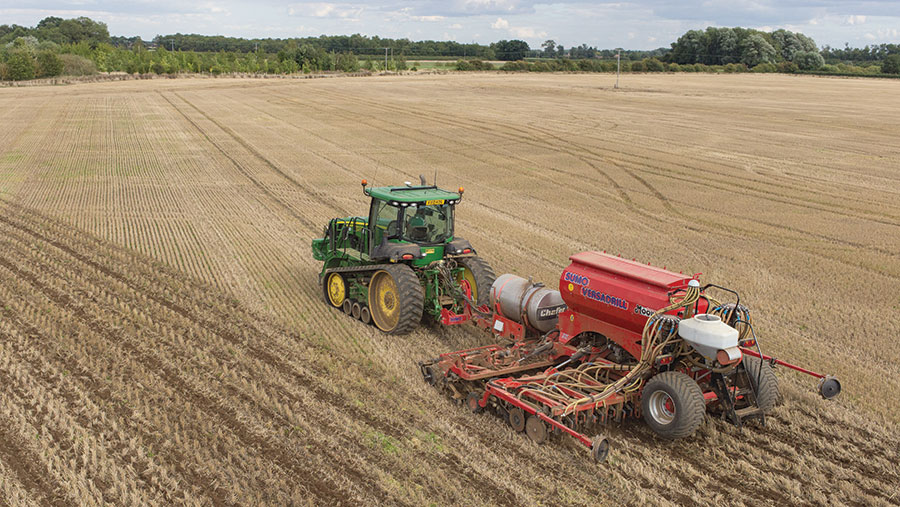Cereals 2020: Field-scale tests on flea beetle control to start
 © Tim Scrivener
© Tim Scrivener Six oilseed rape growers will help test key cabbage stem flea beetle management strategies on a field scale in a new project launched by Bayer and managed by crop consultant Adas.
The project will aim to improve oilseed rape sustainability in the face of flea beetle pressure by building on the most successful techniques identified by 220-plus growers in a national flea beetle management study undertaken this spring.
It brings together the six growers selected from Adas-run tramline trials comparing one of the fastest-developing hybrids Excited, from Bayer’s Dekalb stable of varieties, with farm-standard varieties across a range of establishment practices.
See also: Oilseed rape variety choice is key to beat beetle threat
Comprehensive work
The work will be supported by soil moisture measurements at cultivation, drilling and crop emergence, as well as assessments of flea beetle pressure, adult damage, establishment success and larval levels.
The rapeseed breeder and agrochemicals group launched its Dekalb Farm Innovation Group (FIG) project at the Cereals LIVE 2020 as flea beetle damage is one of the major reasons behind the falling area of oilseed rape being grown.
“Our national study underlined the particular value of fast-developing as well as vigorously establishing hybrids alongside sowing at the right time,” said Richard Phillips, Bayer’s Dekalb technical specialist.
“So, we want to examine these contributions and a number of other promising practices like organic manuring, companion cropping and drilling into long cereal stubbles in more depth and with greater precision. That way, we can give growers the best and most practicable research-based advice,” he added.
Grower involvement
Sarah Kendall, Adas crop physiologist, said the precise balance of different flea beetle management practices examined will depend on the interests and experiences of the growers involved.
“Like the other FIG projects we run, so much of the value of this initiative will come from the discussions we have with group members in setting up the work, debating its findings and combining them with established elements of best oilseed rape-growing practice,” she said.
Dr Kendall added that getting crops established is only part of the battle, as oilseed rape also needs to be profitable.
“This means growers can’t afford to throw key elements of proven best management practice out of the window in dealing with flea beetle. Otherwise, they’ll end up with difficult-to-manage crops that will always struggle to deliver the yields that make them worth growing,” she said.
The most useful flea beetle controls need to be integrating carefully into the most productive management regimes, she said. If this means changing when or how growers establish or manage crops, there will be a need to adjust other elements of agronomy to fit.

